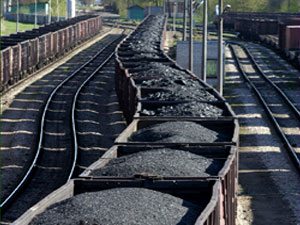
AN improved performance from its coal division helped Exxaro Resources to a 10% lift in interim attributable earnings and 2% higher headline earnings – enough to encourage it to pay a 38% higher interim dividend of 90 cents/share.
Contributions from the group’s investments were 31% lower, however: Sishen Iron Ore Company (SIOC), an iron ore producer, improved income but passed the dividend. The dividend was lower from Tronox which produces mineral sands. Mafube, a coal mining joint venture held with Anglo American, paid a R450m (H1 2015: nil) dividend.
The outcome was R1.29bn in interim attributable earnings (R1.18bn) equal to 362 cents/share in earnings (329c) – an increase of 10%. Headline earnings came in at R1.09m (R1.08m) or 309 cents per share (303c/share).
Coal, the commodity that is deeply embedded in the firm’s DNA, was the highlight of the period. Of R3.17bn in net operating profit, the coal business contributed R2.57bn. Production, at 21.4 million tonnes (mt) excluding buy-in of other coal, was 10% higher year-on-year; sales were 9% higher.
The improvement was down to the purchase of Total Coal South Africa, renamed ECC, which added two million tonnes to total production which was exported. Exxaro said that notwithstanding depressed conditions in the export coal market, it had had good demand for its product which rose 71% to 4.1mt from 2.4mt.
Exxaro said that it expected the second half of its financial year to be improved for its coal business owing to stable conditions domestically and the impact of ECC. Interestingly, the thermal coal price outlook was improving, it said. Sales from Grootegeluk and Matla would also improve.
The impact of ECC on Exxaro’s export sales mix is to lower the overall quality but custom-make the product for Asian markets away from European markets. The purchase of ECC also increased Exxaro’s overall entitlement through Richards Bay Coal Terminal (RBCT) such that it decided to swap its entitlement in South Dunes Coal Terminal for a direct RBCT stake.
BALANCE SHEET
Dividend payments, a 17% increase in capital expenditure as well as net financing charges was a drain on the balance sheet which, coupled with a R147m decline in operating cash flow, saw net debt year-on-year increased to R2.28bn from net cash of R55m, but an improvement on R3bn in net debt as of December 31. Net debt reflected “… a prudent net debt to equity ratio of 6.5% (0.2%),” said Exxaro.
The R27bn group will be facing higher interest following restructuring of its R8bn in debt facilities which will now be spread over three, three- to five-year tranches. However, the covenant terms were improved. Included in the debt restructure is the option to lift the facility to R10bn.
UNFINISHED BUSINESS
Despite the improved financial performance, and uppish statements Exxaro made today about the future of coal sales and international markets in the fuel, there was much to ponder in terms of unfinished business.
Exxaro said it was waiting for Eskom to stump up investment in order to meet the required volumes set down in a coal supply agreement (CSA) between the utility and Matla, the Mpumalanga province mine Exxaro operates.
One of Matla’s shafts was on care and maintenance whilst capital project approval was outstanding which would leave the mine’s two remaining shafts to produce 4.3mt of coal in the second half of the year, taking full year output to 8.3mt, some 1.7mt below the stipulated contract volume.
“We continue to engage Eskom to provide the required capital funding which will improve performance,” said Exxaro in notes to its published interim results announcement. “Alternatively, we will be considering available recourse in terms of the CSA,” it said. A CSA between Exxaro and Eskom’s Majuba power station had also ceased at March 31.
Discussions were also underway with Eskom in respect of settling the full provision for the rehabilitation of Arnot mine which was formally closed in the previous period after renewal of the CSA with the power utility could not be agreed.
Commenting on plans to restructure its black economic empowerment (BEE) structure, Exxaro said that the outcome might result in it having less than its current control status of 51%. “We are engaging with our existing BEE shareholders as the ultimate size of a replacement transaction will depend on the size of their level of reinvestment”.
It added that a future structure “… has also been complicated by uncertainties surrounding the new draft mining charter, which, for instance, prescribes empowerment at the mining right level …”.











